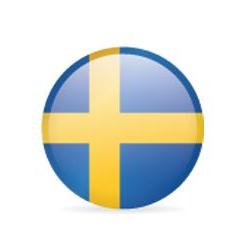Sweden’s iGaming Tax Report Makes No Exception for iPoker

Sweden is currently evaluating its gambling laws in preparations for a slew of major gambling reforms which are expected to be implemented next year. As a part of its ongoing debate, the Scandinavian country enlisted the help of Copenhagen Economics to analyze how other countries approach taxing their gambling industries, and to then use that information to propose a fair tax rate that would allow the Swedish government to profit from gaming without discouraging players from participating.
Copenhagen Economics Recommendations
In a very thorough, comprehensive way, the consulting firm of Copenhagen Economics analyzed the gaming markets of other European nations in a study entitled; “Licensing system for online gambling: Which tax-rate yields both high channelization and high tax revenues?
Specifically, it wanted to see how tax rates compared between different countries, and how many of their players subsequently decided to actually use regulated sites rather than choosing unregulated offshore options. The report unsurprisingly revealed that countries with lower tax rates enjoyed a higher rate of channelization. For example, in the UK and Denmark where channelization was 95 and 88 percent respectively, the tax rates were low at 15 and 20 percent. On the other hand, Portugal and France had the lowest channelization rates at 52 percent and the highest taxation rates at 41 to 45 percent.
Based on their research, Copenhagen Economics concluded that the best rate of taxation for Sweden would be somewhere between 15 and 20 percent of gross gaming revenues. The amount is comparable to what is in place in most countries, but there was one big element missing from the report–it did not make any concessions for online poker.
No Concessions for Poker
In many other regulated countries that have managed to get a large portion of their online players away from offshore sites, online poker has been taxed at a lower rate than other forms of online gaming. However, the Copenhagen Economics report does not take this into account at all, leading industry experts to criticize the study, stating that any legislation based solely only on its recommendations would likely be unsuccessful in protecting consumer interests when it comes to online poker.
While its true that online poker is not as big of a money maker for online operators as other vertices such as casino and slot games, players who enjoy it tend to visit gambling sites more often. In other words, there are more active players on most online poker sites than on other types of gambling sites, and they tend to spend more time playing on average. Furthermore, research has shown that online poker players are far more price sensitive than other casino goers and less likely to be willing to play when they are subject to high rake backs, which is one way that online casinos tend to recoup funds that are lost due to high rates of taxation.
Poker Rethink Needed
There are major concerns that if Sweden and other countries considering online poker legislation follow the Copenhagen Economics study’s recommendations, that their policies will ultimately fail due to a lack of interest. Instead, experts are calling on Sweden to consider taxing online poker at a separate, lower rate. What will be the final outcome? We’ll have to wait and see what comes from the report.
Swedish Gambling Market
Sweden’s state-owned gambling monopoly, Svenska Spel, recently released its financial results for the first nine months of 2016, revealing a 5% increase in revenues to SEK 16.2 billion (€1.624m) compared to the same period of time in 2015. While the growth was positive, the figure was still lower than that recorded in other European countries.
During the nine month period, Sweden’s land based operations generated SEK 5.17 billion of revenues, lower by 3% versus last year. Online gambling, however, saw its business soar by 12% to SEK 1.38 billion, with mobile sales also up by a huge 55% in Q3. Indicating the phenomenal growth experienced in the sector, a record-breaking 161,000 active customers used mobile to gamble during just a single week.









